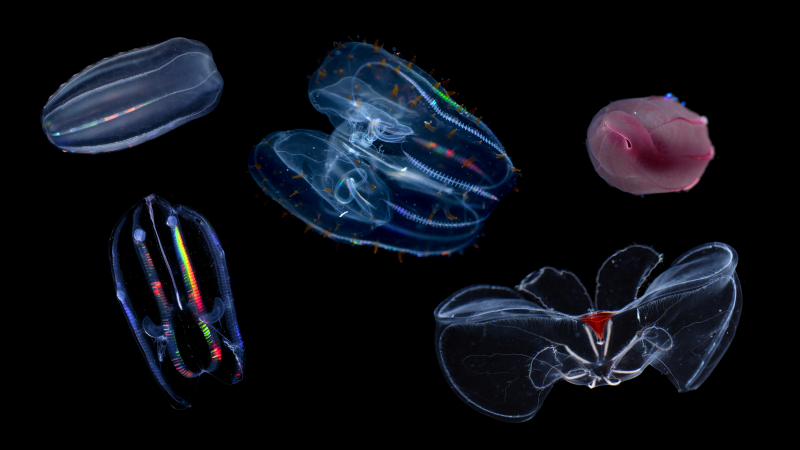Researchers from various disciplines of biology have used tools provided by the NSF-supported Center for High-Energy X-ray Sciences at the Cornell High Energy Synchrotron Source to investigate deep-sea and shallow-water comb jellies. These comb jellies were found to have adapted by developing differently shaped lipid molecules in their cell membranes, which allows them to form membranes with an optimal level of stability based on their specific environment.
This adaptation is crucial for the survival of these animals in extreme environments, as well as for our understanding of human biology and the progression of neurodegenerative diseases like Alzheimer’s. Plasmalogens, the lipids found in the membranes of deep-sea comb jellies, are also present in abundance in the human brain. The loss of these lipids has been linked to disease advancement and aging in humans.
The study conducted by U.S. National Science Foundation-funded scientists using NSF facilities has revealed how ocean creatures have adapted to thrive in vastly different environments. Researchers utilized tools provided by the NSF-supported Center for High-Energy X-ray Sciences at the Cornell High Energy Synchrotron Source to investigate deep-sea and shallow-water comb jellies, revealing that these animals have developed differently shaped lipid molecules in their cell membranes that allow them to form membranes with an optimal level of stability based on their specific environment.
This discovery has significant implications for our understanding of human biology and could potentially enhance our knowledge about neurodegenerative diseases like Alzheimer’s. Plasmalogens, the lipids found in the membranes of deep-sea comb jellies, are also present in abundance in the human brain, and their structure could provide valuable insights into their role in human physiology and disease progression.
Overall, this research conducted by U.S. National Science Foundation-funded scientists using NSF facilities offers valuable insights into how ocean creatures have adapted to survive in extreme environments while shedding light on potential applications for human health research.



